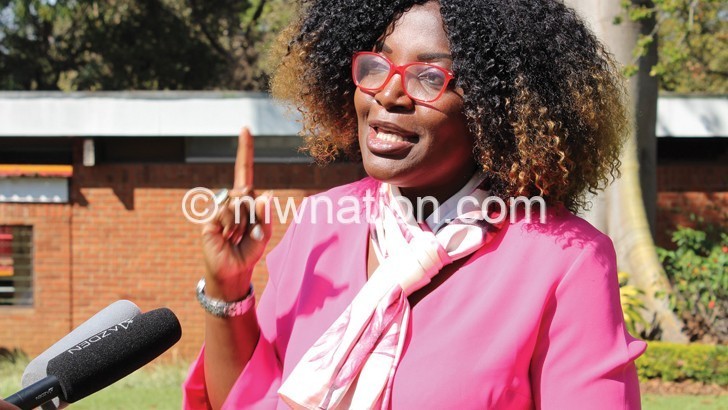Public sector reforms face challenges
The Office of the President and Cabinet (OPC) says implementation and enforcement of the much touted Public Sector Reforms is facing challenges due to lack of an enabling law.
Seodi White, chief director for Public Sector Reforms Unit in OPC, made the down-to-earth admission in an interview in Lilongwe on Monday on the sidelines of the opening of a Public Sector Reforms Implementation Conference for local government councils in the Central Region.
She said councils could embrace decentralisation if enforcement of the reforms is to be a success as some reporting systems at the council are frustrating the enforcement.

Said White: “Enforcement of reforms is a very big struggle. From disciplinary process, again, you find that to enforce performance you have to go to responsible person such as the principal secretaries [PSs].
“We want the DC [district commissioner] to be the one to enforce performance. Those are the issues we are struggling to fix. That is why we would like to change the Public Service Act which will solve the problem once and for all.”
She said Blantyre City and District councils remain the overall best performers followed by Mchinji while Ntchisi is rated as the worst performer. She alleged that the management team at Ntchisi District Council stayed away from monitoring and assessment every time her unit visited them.
In July last year, The Nation established that the Public Sector Reforms Programme was barely breathing six months after it was moved to OPC from the direct supervision of Vice-President Saulos Chilima.
Interviews with multiple sources—including local government councils, OPC and ministries, departments and agencies (MDAs)—established that there was little contact between the reforms unit at OPC and implementing agencies.
One DC told The Nation then that after six months of silence from the reforms unit, local councils and MDAs received a letter in July 2017 demanding quarterly progress reports.
The February 2017 exit report by the Chilima chaired commission, which White was a member, observed that it was essential for the reforms to gather real momentum and start making impact. It added that success symbols of the process as well as on the ground demonstrating tangible improvements in public service delivery would also help in wider acceptance of the need for and benefits of reforms.
White yesterday dismissed “perceptions” that the reforms stalled since they were moved to the OPC.
She said: “It is the same district councils who were doing the reforms when it was under the Vice-President. Now, at the OPC, we are just monitoring them. I cannot comment better on this because I know it is a perception. Suffice to say that I have seen that there is a lot of work happening. We have produced two policies, public sector reforms and management policies.”
Ministry of Local Government and Rural Development deputy director of planning and policy Walusungu Kaira said councils continue to face challenges in implementing reforms and reduced funding is a major reason.
In reaction to The Nation story last July, the Ministry of Information and Communications Technology cautioned critics against politicising the reforms.





